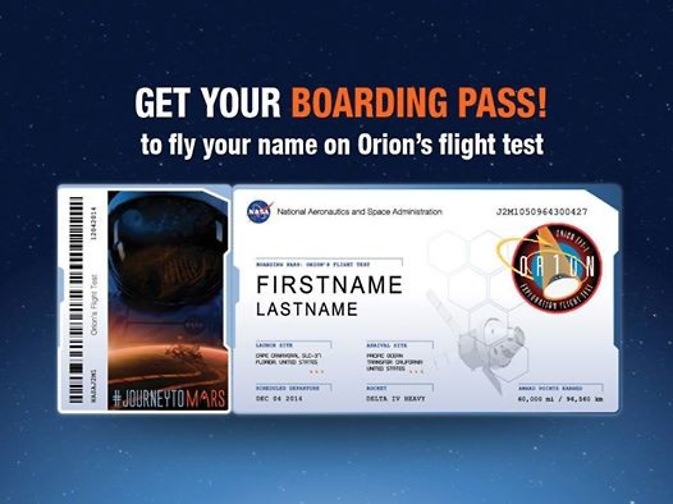Here’s your chance to participate in NASA’s ‘Journey to Mars’ and the first flight of the new Orion spacecraft that will eventually transport humans to the Red Planet.
NASA invites you to send your name to Mars. And the adventure starts via the first Orion test flight dubbed Exploration Flight Test-1 (EFT-1) scheduled for blastoff on December 4, 2014, from Cape Canaveral in Florida.
Today NASA announced that the public can submit their names for inclusion on a dime-sized microchip that will travel on spacecraft voyaging to destinations beyond low-Earth orbit, including Mars.
Join over 170,000 others who have already signed up in just the first few hours!
Since the Orion EFT-1 mission is set to launch in less than two months, the deadline to submit your name is soon: Oct 31, 2014.
“NASA is pushing the boundaries of exploration and working hard to send people to Mars in the future,” said Mark Geyer, Orion Program manager, in a NASA statement.
“When we set foot on the Red Planet, we’ll be exploring for all of humanity. Flying these names will enable people to be part of our journey.”
How can you sign up to fly on Orion EFT-1? Is there a certificate?
NASA has made it easy to sign up and you can also print out an elegant looking ‘Boarding Pass’
Click on this weblink posted online by NASA today: http://go.usa.gov/vcpz
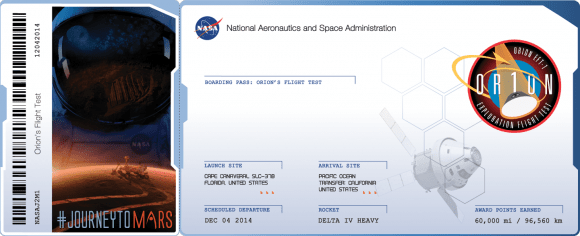
According to the websites counter, over 170,000 people have already signed up today!
And NASA says your journey doesn’t end with EFT-1!
“After returning to Earth, the names will fly on future NASA exploration flights and missions to Mars. With each flight, selected individuals will accrue more miles as members of a global space-faring society,” according to a NASA statement.
So, what are you waiting for?
Remember the deadline is Oct 31, 2014!
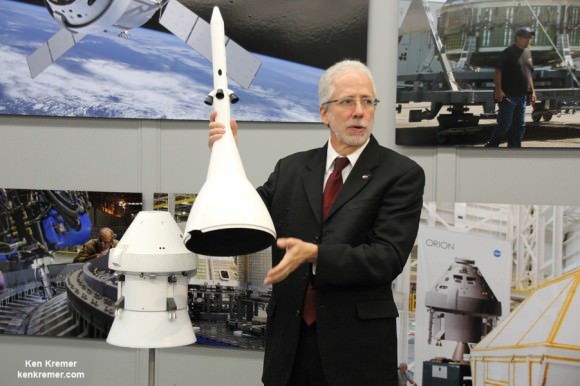
What are the goals of the Orion EFT-1 mission?
Orion will launch atop a Delta IV Heavy rocket from Space Launch Complex 37 on Cape Canaveral Air Force Station.
The two-orbit, four and a half hour EFT-1 flight around Earth will lift the Orion spacecraft and its attached second stage to an orbital altitude of 3,600 miles, about 15 times higher than the International Space Station (ISS) – and farther than any human spacecraft has journeyed in 40 years. It will test the avionics and electronic systems inside the Orion spacecraft.
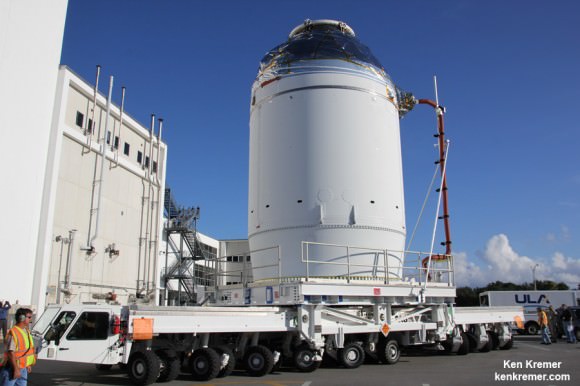
Then the spacecraft will travel back through the atmosphere at speeds approaching 20,000 mph and temperatures near 4,000 degrees Fahrenheit to test the heat shield, before splashing down for a parachute assisted landing in the Pacific Ocean.
Stay tuned here for Ken’s continuing Orion and Earth and planetary science and human spaceflight news.
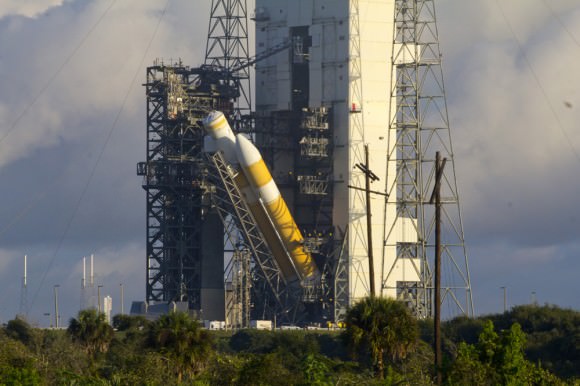
…………….
Learn more about Orion, Space Taxis and NASA Human and Robotic Spaceflight at Ken’s upcoming presentations:
Oct 14: “What’s the Future of America’s Human Spaceflight Program with Orion and Commercial Astronaut Taxis” & “Antares/Cygnus ISS Rocket Launches from Virginia”; Princeton University, Amateur Astronomers Assoc of Princeton (AAAP), Princeton, NJ, 7:30 PM
Oct 23/24: “Antares/Cygnus ISS Rocket Launch from Virginia”; Rodeway Inn, Chincoteague, VA

